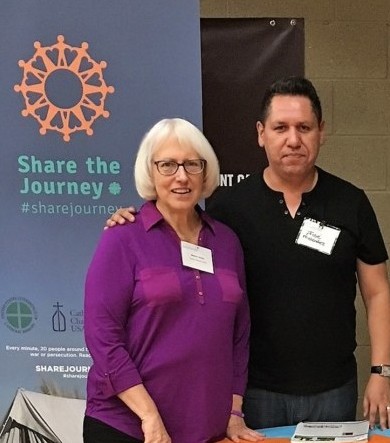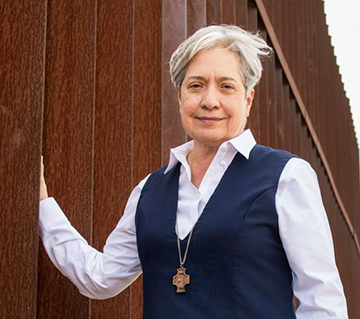 Sr. Norma Pimentel, a Missionaries of Jesus sister, made news on January 10th when she was invited to a roundtable discussion of border issues as President Donald Trump visited the U.S. southern border. She had invited him in a public letter the day before to visit the Humanitarian Respite Center she runs.
Sr. Norma Pimentel, a Missionaries of Jesus sister, made news on January 10th when she was invited to a roundtable discussion of border issues as President Donald Trump visited the U.S. southern border. She had invited him in a public letter the day before to visit the Humanitarian Respite Center she runs.
But Trump had dismissed that border visit beforehand as a waste of time and mere photo op, The New York Times reported. Pimentel’s presence at the roundtable was just that — she was in the audience, not at the table, and not allowed to speak. All those speaking praised Trump administration policies.
Yet behind Pimentel’s witness for more humanitarian treatment of asylum-seekers by the administration is a host of women religious who have traveled across the United States and Canada to volunteer at the border in recent months. The wave of volunteers comes in response to information and a call to help issued in October by the Leadership Conference of Women Religious.
At least 286 sisters have volunteered at the border, and congregations have sent more than $340,000 to the agencies working there, such as the Humanitarian Respite Center in McAllen, Texas, and Annunciation House in El Paso, Texas, and many others, said Sr. Carol Zinn, SSJ executive director of LCWR.
Zinn, a Sister of St. Joseph of Philadelphia, said those are only the volunteers and donations LCWR knows about, and that she woul
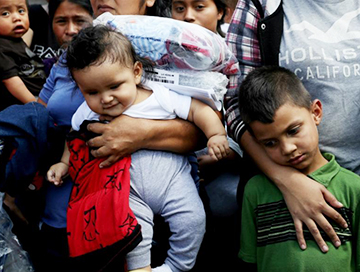
dn’t be surprised if the true number was more than 500 volunteers and more than $500,000 donated, and the volunteers and donations continue to flow south.
President Trump made a pitch for the wall in an address from the Oval Office Jan. 8, a speech the Sisters of Mercy of the Americas said in a statement was “rooted in untruths, fear and division.”
“Make no mistake, there is a humanitarian crisis on the border, but it is one of the Trump Administration’s own making,” the statement said.
It concluded: “We are at a pivotal moment in history, one that asks our nation to reflect and act justly upon what it truly means to welcome the stranger. Our faith demands that we not be on the wrong side of history.” To read the full account: https://www.globalsistersreport.org/news/ministry-migration/trump-visits-border-pimentel-and-other-sisters-keep-their-witness-55781 To read a related article: https://www.commonwealmagazine.org/building-bridges-border

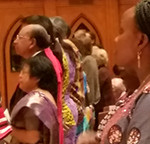


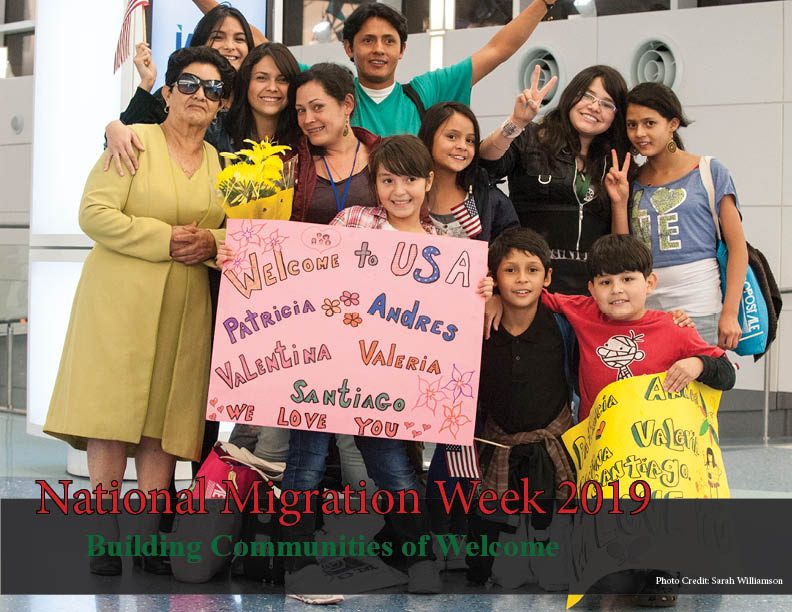
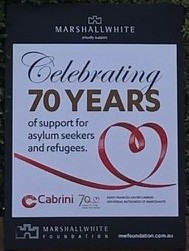 , the Cabrini Asylum Seeker and Refugee Health Hub was opened, to respond to the significant unmet needs for this vulnerable population. The Hub provides free access to primary health and specialist mental health services for newly arrived refugees and people seeking asylum.
, the Cabrini Asylum Seeker and Refugee Health Hub was opened, to respond to the significant unmet needs for this vulnerable population. The Hub provides free access to primary health and specialist mental health services for newly arrived refugees and people seeking asylum.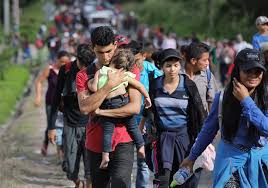 The Vatican praised the adoption by more than 160 nations of a key agreement on global migration, saying today’s migration challenges are better tackled together than with “isolationist” stances.
The Vatican praised the adoption by more than 160 nations of a key agreement on global migration, saying today’s migration challenges are better tackled together than with “isolationist” stances.